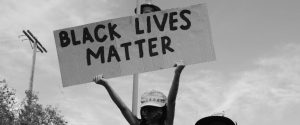After what you would have thought was an unthinkable, impossible, can’t-happen-here murder, George Floyd’s death hangs over us all posing, among many other questions, the most important one: what now?
I came of age in the late ‘60’s and early 70’s, an era of protest and reform. We marched against the Vietnam war, and we protested for civil rights, led by Martin Luther King and Malcolm X, both of whom were assassinated. We made progress, or so we thought, but it turns out the shackles of racism and ignorance are not so easily broken.
I have a friend who emailed me shortly after Floyd’s murder, “When my husband & I immigrated here in 1977 after leaving South Africa because of our anti-apartheid stand, we were looking forward to a new life in a non-racist society. The long-standing lack of true equality here as reflected in recent events, bring back so many scary reminders of our previous lives with unfettered police violence & police power. Let’s hope that this situation results in some long-standing change & racial justice!”
Let’s hope indeed. But hope is not a strategy. Still, the horror we all witnessed as we, so many millions of us, watched one white man wearing a police uniform choke the life out of a hand-cuffed black man as he lay face down on the ground by kneeling on his neck in apparent indifference to the consequences has set off righteous outrage the like of which we desperately need. We need outrage. Not violence, not mayhem, not an eye for an eye, but we need outrage.
And not feckless outrage, the outrage a person might feel over something he or she cannot influence or change. But outrage that leads us all to take whatever actions we can. One step I can do is speak through my podcast and write to you all. Think to yourself what you can do because this is a battle we all need to join.
Start by looking within. I’ve wondered to myself just exactly what was I thinking when in medical school in New Orleans I would drive by a towering statue of Robert E. Lee at Lee Circle every morning on my way to class. That it didn’t phase me today makes me feel ashamed. How could I not have taken exception, if not umbrage, to a statue commemorating a man who led armies whose stated goal was to protect and preserve the most evil, unjust, and shameful institution in our history, slavery? How could I not have noticed?
But now I, like millions of others, am starting to wake up. Rather than avoid conflict, make peace at any price, I want to stoke and maintain my own outrage, at myself first of all, but at the appalling Doublethink, to use George Orwell’s term, that has allowed me for so many years to look the other way at Lee’s statue, and at the many other bits of racism I commit without even noticing. It would be hypocritical of me to condemn racism until I root out the racist in myself.
But there’s hope. For me, for you, for this country and the world. I daresay, we may right now in the U.S. be in transformation, ushering in momentous change for the better. Of course, all the returns are far from in. But how’s this for an amazing start? Three bastions of American society, mainstream, universally popular, and as American as proverbial apple pie have stepped up in a major way.
The National Football League has admitted it failed to understand the plight of the black athlete and blacks in America in general. It has endorsed the Black Lives Matter movement. We wait and hope that an apology to Colin Kaepernick will come next.
NASCAR, as down home and populist an organization as you can find, has banned the Confederate flag from its cars and tracks.
And in country music, Lady Antebellum has dropped Antebellum from its name, becoming just Lady A.
The NFL, NASCAR, and country music—a trifecta at the heart of the American grain.
Here’s, not just hoping, but insisting we keep this movement growing. How better to give us all what we need most, peace, justice, and love across a nation that’s striving to grow.
I challenge you all to take a risk in the face of injustice. Take a look at what you read, watch on TV, and listen to on the radio or internet. If they all reside in domains of your own personal makeup, step outside of your bubble and learn from someone or something that looks different from yourself. It’s a small, small step, but a step nonetheless. We all have a responsibility here to:
- listen,
- learn, and
- take action.
So let’s go out and do it.
Warm regards,
Edward “Ned” Hallowell, M.D.
Sharing the following post from our Hallowell Todaro ADHD Centers located in Kirkland, Seattle and Palo, Alto:
 Racism, Outrage and Grief: Helping Kids Make Sense of it All
Racism, Outrage and Grief: Helping Kids Make Sense of it All
By Peggy Gomula and Sally Kidder Davis
How to Talk to Kids about Race and Racism via ParentToolkit.com
For additional information, check out these resources:
Talking to Kids About George Floyd – Child Mind Institute
Talking to Kids About Racism, Early and Often – New York Times
How White Parents Can Use Media to Raise Anti-Racist Kids – Common Sense Media
If you’re struggling with anxiety, depression, anger or other issues, The Hallowell Centers are here to help. We’re offering remote therapy to help you take care of yourself.
Read my blog post on Race and Privilege.






